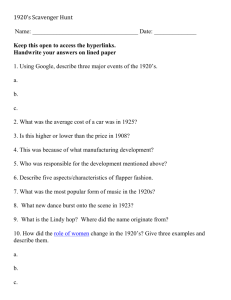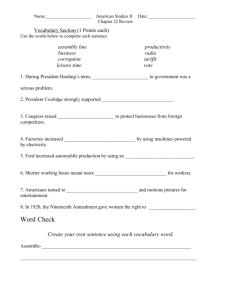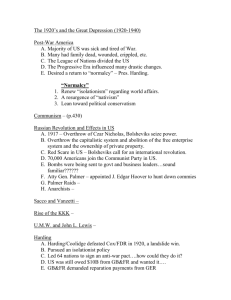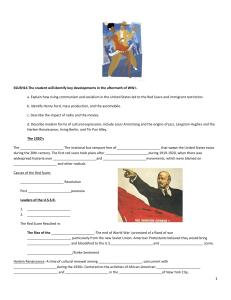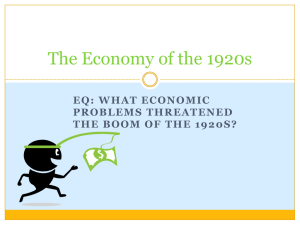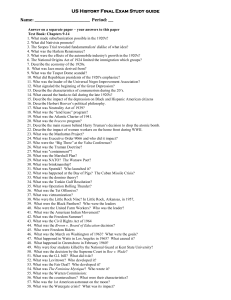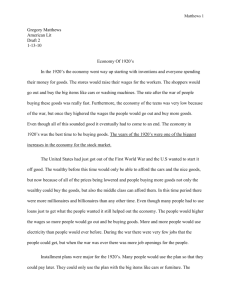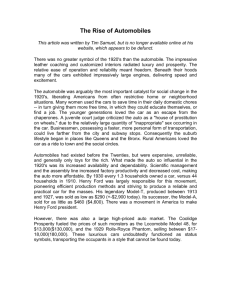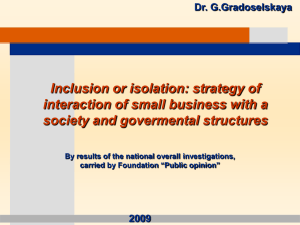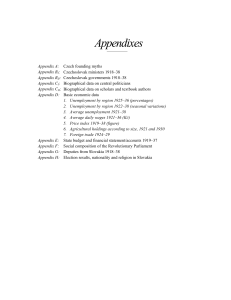The Business Boom of the 1920's
advertisement
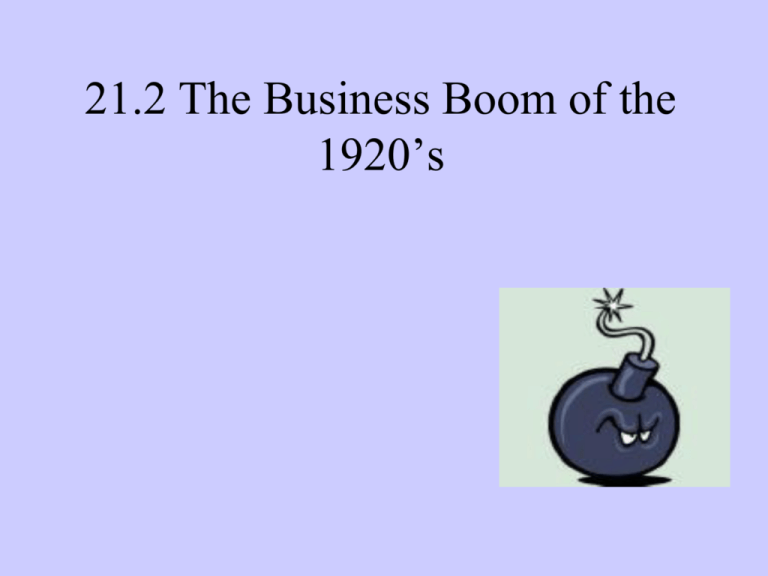
21.2 The Business Boom of the 1920’s Four Main Factors fueled boom : 1. Effect of WWI on Technology: * during the war there was a labor shortage, combined with the need for production…gave way to a need for a more efficient method of production. * war stimulated old industries (petroleum and steel) and created new industries like plastic and rayon 2. Assembly Line and Scientific Management (aka “Taylorism”) Frederick Taylor analyzed factory production techniques. Discovered that if each worker specialized in a task, the output was higher. Rewards and punishment based on output. 3. Consumer Economy: Scientific management and new technology increased worker productivity workers earned higher wages and became better consumers. A new innovation appeared: the installment plan, which encouraged Americans to build up debt in order to buy consumer goods. conspicuous consumption: * Radio: 1922= 3 million American households had radios, 1929 =annual sales of $850 million (up 2500%). · * Motion pictures: 1922 = theaters sold 40 million tickets/wk 1929 = theaters sold 100 million a week. One of the capitalists who cashed in on Hollywood was Joseph P. Kennedy, patriarch of the Kennedy's, one of the nation's most influential political families. During eight months in Hollywood, he made $6 million. · *electric appliances: made life easier for the middle-class American housewife: vacuum cleaners, toasters, washing machines, refrigerators. *Automobile industry: ownership of autos went from 2 million in 1920’s to 5.5 million in 1929. There was one automobile for every 5 Americans! 2 factors led to the rising popularity of cars: Cost-- The price of automobiles declined , working families could now afford to purchase a car. The Model T Ford, for example, cost just $290 in 1926. Credit-- In 1925, Americans made 75% of all automobile purchases on the installment plan. 4. Relations between the federal gov’t and big business: Americans began to equate prosperity with progress. Relationships between businessmen and gov’t had never been closer than they were in the 1920s. "The American Way" Businessmen preached a return to laissez-faire economics, less gov’t regulation of business, and less gov’t support for labor unions. 4 ways Federal Gov’t supported big business: 1. High Tariff policies (Fordney-McCumber Act) 2. Andrew Mellon: Secretary of Treasure. Urged congress to reduce rates for corporations and income taxes. Gave business leaders a list of tax loopholes from the IRS 3. Cutbacks in the FTC: originally created to regulate big business, decreased power throughout the 1920’s 4. Herbert Hoover: Secretary of Commerce, encouraged price fixing.
